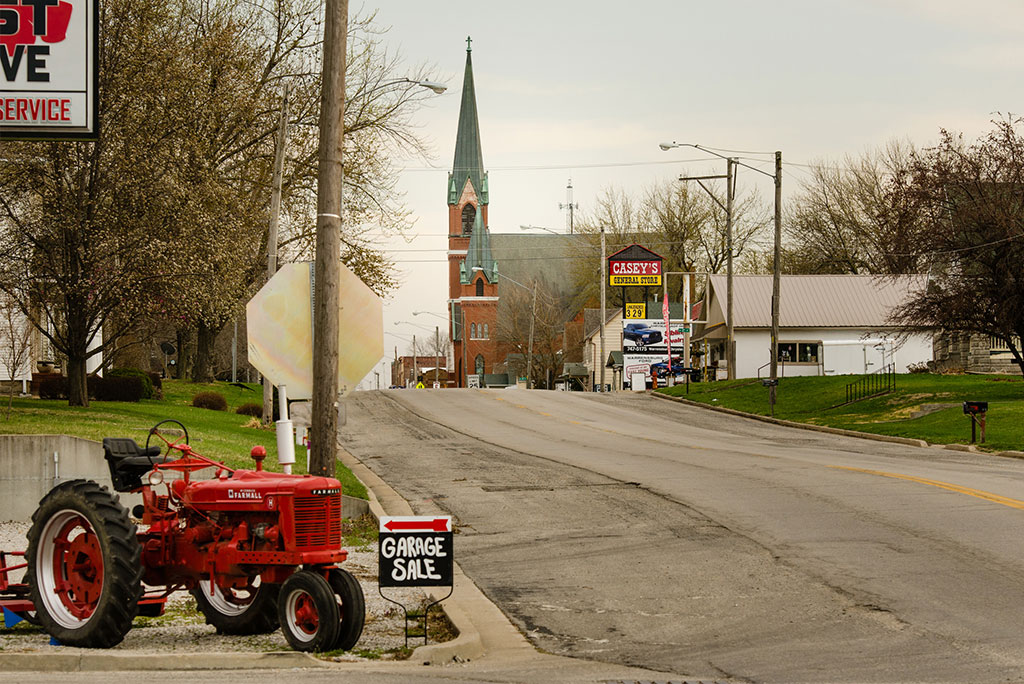Rural settings are unique. Typically a rural community is family driven and shaped by the economy. If a rural area does not have the needed infrastructure to sustain good jobs, it will tend to be an older community because the younger generation will move in order to find jobs so they can provide for their family. This creates the dynamic that family is the most important thing. In the South, attending church is still important—though not as much as it used to be though. Rural churches are places where families go on Sunday just as much as a part of a tradition as it is as a time to go worship the Risen Lord.
Where I serve in Mississippi, football and family are king. In the heart of SEC Country people discuss Ole Miss and Mississippi State University and, sometimes, the University of Southern Mississippi. In the fall we talk high school football and in the winter we talk basketball. Sports and going to Momma’s house for Sunday dinner (or lunch for those of you who don’t speak Southern) is just as much a part of the culture as anything. In the midst of this sits the Church. Churches are still visible yet at the same time, they are hidden behind the cloud of the culture. The South can be a very dark place rooted in religious observance which has little effect on the daily lives of the people who live here.
If a pastor is called to a church that needs replanting he faces a battle. If he does so in a rural context it is far more difficult. It could be described as trying to put out a fire with gasoline. Without understand the context of the community a church will flounder in ministry and a replanting pastor will struggle with leading and believing that he can be successful in ministry.
Often, a church and her people have been a part of the community for so long that it no longer sees the culture as it is. Sometimes they neglect to see that communities are no longer hubs for families but centers for depression and loneliness. Sometimes they assume that everyone in the community is connected to church because it seemed that was the way it used to be.
A replanter must see the rural culture for what it is: a place ripe for missional engagement and a place that desperately needs the Gospel message of reconciliation. If a replanter wants his church to see the culture this way, then the pastor must as well. Here are some practical ways to see the community as it is.
- Find the coffee spot.
Notice that I did not say find the coffee shop. Find the coffee spot. Every rural community has some place where the old men go to drink coffee. In my area one of the biggest places is a local car parts shop. Go there to listen to the men. They will tell you what is going on in the community. Now this is sprinkled with a lot of gossip…but it is still a great place to find out what people are going through in the community. - Go watch the local high school sports team.
In a lot of rural areas the local high school is the one place where people can go and be united. Go spend time at the football game. You will meet people there who do not go to church and will probably never just randomly show up. But at these events you can meet city and community leaders and you can gain a reputation for being a pastor who cares about his community. Additionally, in most rural areas there really isn’t much to do so people support local high schools because it is a cost effective entertainment avenue. You would be surprised at the number of rural pastors who never go to these things and miss out on great opportunities of ministry. - Connect with local pastors.
This seems like a no-brainer but many rural areas are served by pastors dealing with the same problems that a replanter is. They may not be as pronounced but they are there. A replanter needs to connect with local pastors who are serving the community. This is even more true for a Replanter who is an outsider because he does not have the necessary connection points as these seasoned pastors. Take them out for lunch and ask them where the connection points are in the community. Additionally, use your visits to encourage them. A lot of rural pastors have been successfully shepherding their congregations for years and could use a good word from someone.
If you are going to replant a rural church, you MUST understand the community. By understanding the community, you will discover the disconnect between it and the church. The replanter must lead the way in understanding the context of the community in order to lead the church to serve it. He cannot do that by staying in his office. He must connect with the community.
Published November 22, 2016




